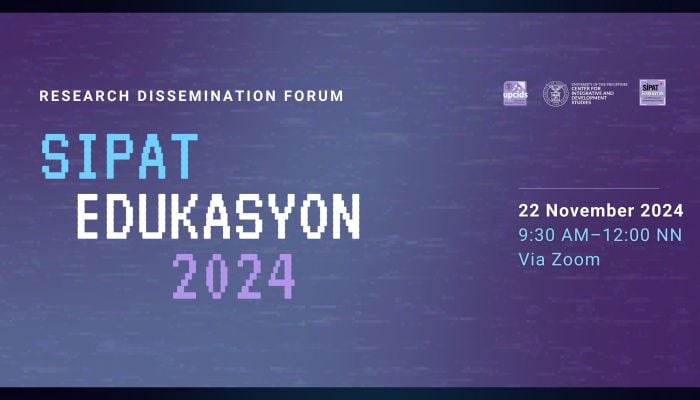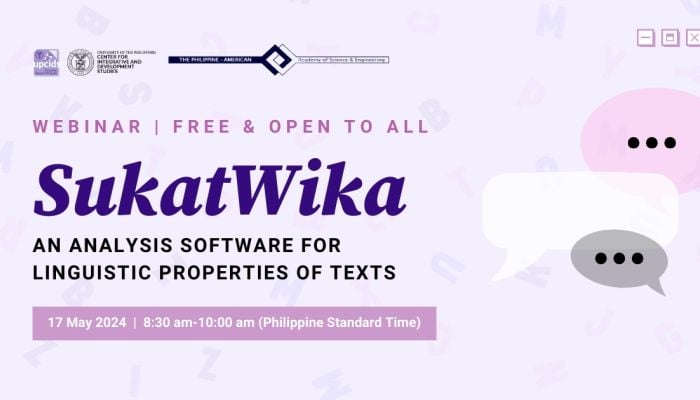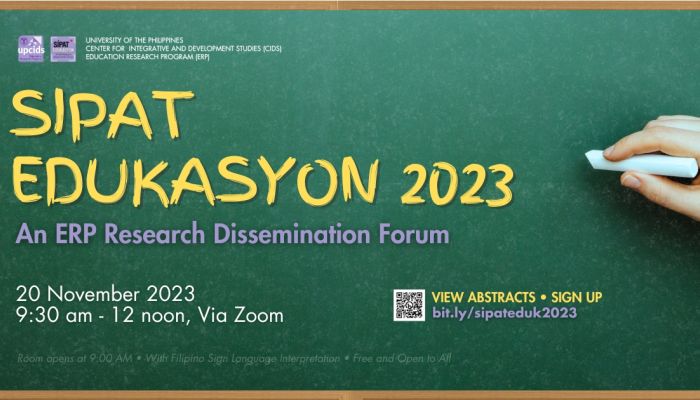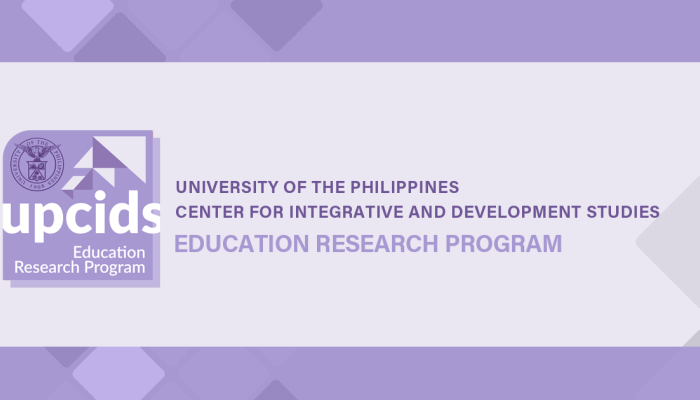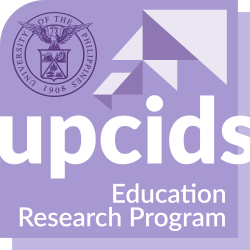
Education Research Program (ERP)
-
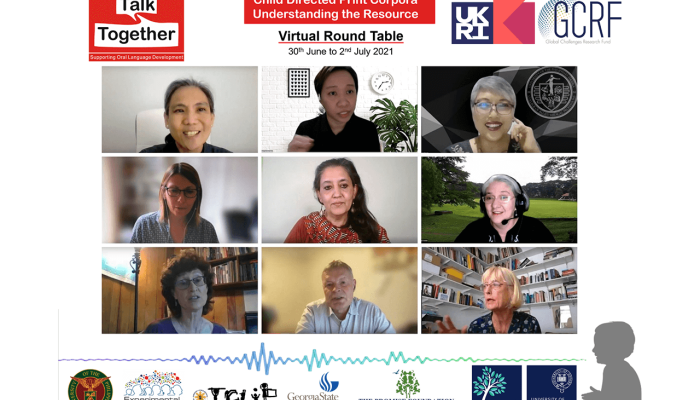 Source/Credit: TalkTogether1 virtual round table.png Co-chairs with some of the presenters at the virtual round table hosted by the University of Oxford TalkTogether
Source/Credit: TalkTogether1 virtual round table.png Co-chairs with some of the presenters at the virtual round table hosted by the University of Oxford TalkTogether -
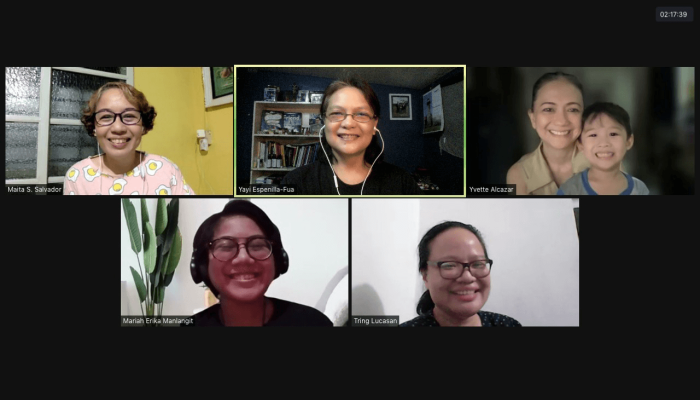 Source/Credit: Margaret Mary Rosary Carmel FuaValidation and finalization of the Multi-Literacy Assessments for Filipino Children
Source/Credit: Margaret Mary Rosary Carmel FuaValidation and finalization of the Multi-Literacy Assessments for Filipino Children -
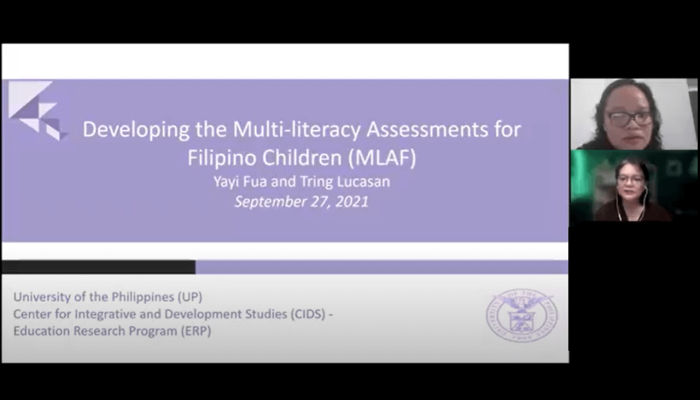 Source/Credit: Kathrina Lorraine LucasanPresentation of the development of the Multi-literacy Assessments for Filipino Children to reading students
Source/Credit: Kathrina Lorraine LucasanPresentation of the development of the Multi-literacy Assessments for Filipino Children to reading students -
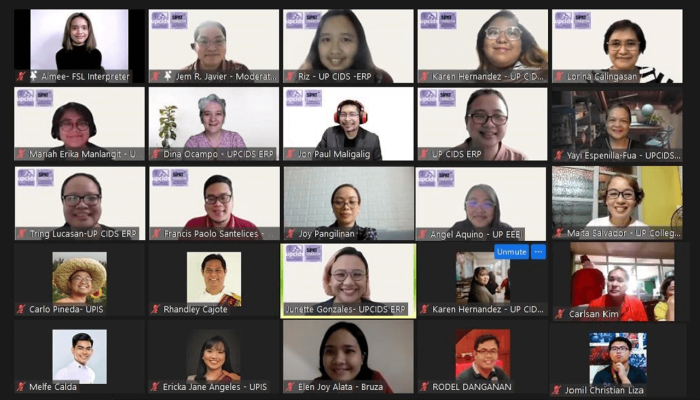 Source/Credit: Karen Angela Hernandez and Pam GonzalesSipat Edukasyon last November 26, 2021
Source/Credit: Karen Angela Hernandez and Pam GonzalesSipat Edukasyon last November 26, 2021 -
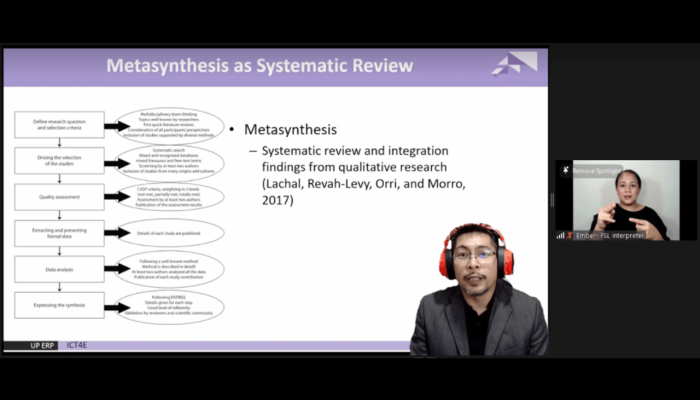 Source/Credit: Karen Angela HernandezPresentation of ICT for Education research by Jon Paul Maligalig
Source/Credit: Karen Angela HernandezPresentation of ICT for Education research by Jon Paul Maligalig -
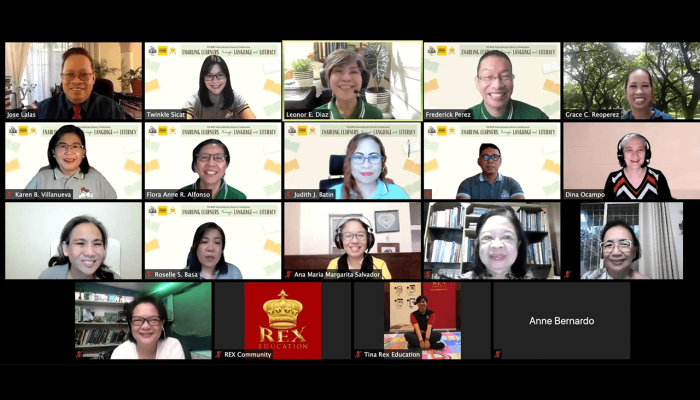 Source/Credit: Dr. Dina OcampoParticipants of the 7th Reading Association of the Philippines International Conference including Dr. Dina Ocampo, Prof. Margaret Mary Rosary Carmel Fua, and Dr. Portia Padilla Dr. Dina Ocampo
Source/Credit: Dr. Dina OcampoParticipants of the 7th Reading Association of the Philippines International Conference including Dr. Dina Ocampo, Prof. Margaret Mary Rosary Carmel Fua, and Dr. Portia Padilla Dr. Dina Ocampo -
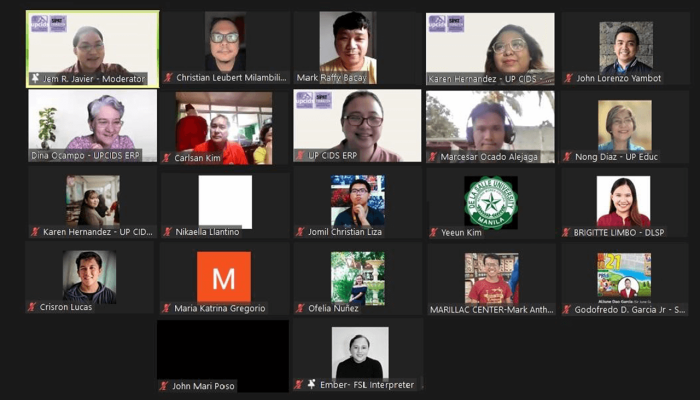
-
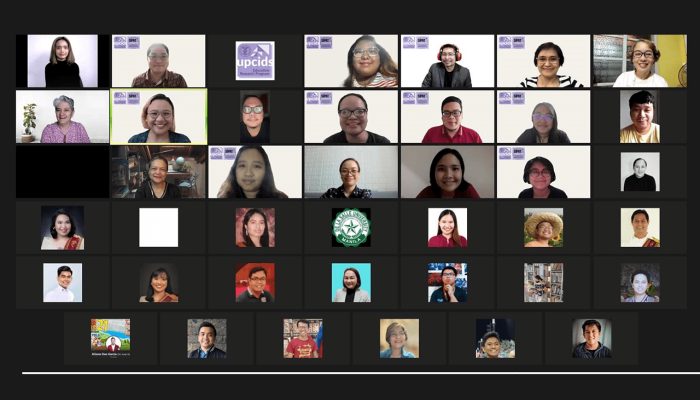
Rationale
From 1991 to 2005, the Education Research Program (ERP)’s research agenda was crafted together with educationists and disciplinal experts to make education research more relevant to communities.
One strand of inquiry in the agenda focused on functional literacy and non-formal education. The emphasis of the research inquiry was on comprehensive community-based development through education interventions for adults.
Another strand of inquiry was on the indigenization of curricula to suit the knowledge, values, practices, culture, and skills of members of indigenous or cultural groups.
Family studies and education inquiries also comprise another set of research projects within ERP.
The institutionalization of the K-to-12 Basic Education Program created major changes in the basic education curriculum which affects not only higher education but also early childhood and technical education. Many transitory scenarios and challenges have come to fore as the Philippines undergoes massive reforms.
Objectives
ERP crafted an education research agenda for five years (2018–2023), together with fellows and colleagues who are entrenched in education delivery and/or research.
The objective of the agenda is to direct ERP’s work that will contribute to the deeper understanding of education issues and the social issues arising from reform.
Below will be the objectives that will be met by crafting the agenda:
-
- To consolidate research and to create themes of Filipino scholarship on education topics
- To understand current issues in the education landscape
- To nurture a critical group of faculty researchers on education that is ably supported by competent research staff
Publications
Activities and Projects
As internet use and access to social media continue to rise in the Philippines, the production and distribution of false and malicious information online also become more prevalent and sophisticated. With disinformation as a widely used tactic to advance political and commercial interests, it is necessary for online users to find better ways to evaluate information. Based on the online civic reasoning curriculum formed by Stanford History Education Group, the workshop provides strategies and activities to help online users in spotting fake news online.
View the Term Reports from 2018 to 2022 for a list of ERP programs and activities, which include meetings, webinars, and/or publications (forthcoming or already published).
News
The Team
as of May 2025
Dina S. Ocampo, PhD
Co-Convenor
University of the Philippines Diliman
Lorina Calingasan, PhD
University of the Philippines Diliman
Kathrina Lorraine M. Lucasan
Senior Research Analyst
Junette Fatima D. Gonzales
Senior Project Officer
Paulina Regine Miranda
Junior Research Associate
Kaye Danielle Sandigan
Junior Research Assistant
